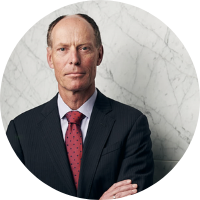A message from Professor Paul Kofman, Dean of the Faculty of Business and Economics.
Dear Students,
I hope you had a restful weekend. This week I wanted to highlight an issue I feel very strongly about and that is racism. I was appalled and deeply saddened by the recent attack on two University of Melbourne students as well as reports of other students of Asian background being discriminated against. This is not OK, nor should it be ‘justified’ by extraordinary circumstances. Along with the entire University’s leadership, including the Vice Chancellor in a recent article and Deputy Vice Chancellor International, I want to be very clear that there is no place for racism in our community.
When I hear of such reports, my first instinct is to ask ‘why’? Why does this kind of behaviour occur? And if we know what causes it, can we prevent it from happening in times of added stress and crisis, when it often seems to emerge?
So this week I want to address this important issue by referring to a recent article by two of our Management academics, Professor Hari Bapuji and Dr Victor Sojo. The article seeks to answer these questions from a social science perspective.
Hari and Victor point to evolutionary research that shows there is a tendency for people to create social categories in their minds and accordingly form groups. These groups can be a positive force, but they can also be negative and the criteria our brains use to form them is not always rational. Research shows that people often favour their own ‘group type’, which causes some people to separate themselves from others. In difficult and challenging times this can lead to feelings of fear, resentment and rejection of difference.
We see this type of negative group behaviour play out with racism, but it also features in the human resources nature of organisations. For example, consider women’s struggle to receive equal pay and representation at senior levels, or people with disabilities not having accessible workplaces.
Hari and Victor show there are ways that leaders, be they political or managers within a company, can help prevent racism and other types of discrimination. There are two key aspects to this, strong communication and community:
- Clearly explaining what the issue is, what is being done about it and why they are being asked to contribute helps to debunk any theories and stop the spread of rumours.
- Fostering a supportive, open and inclusive community helps prevent the ‘grouping’ tendencies that can be so destructive.
Like many of you, Australia is not my country of origin, but the University is my community and it is yours as well. Whether virtual or on campus, our community remains strong. Should you, or any of your University friends, experience any type of discrimination or abuse, please contact our Safer Community Program to alert the University and access support services should you need them.
I know that this is a busy time of assignments and tests which can cause extra stress. Please do make full use of the University’s Student Connect Appointments via Zoom and telephone as a starting point to discuss any concerns whether related to your studies or wellbeing.
It is now week 6 of your virtual studies and with new case numbers remaining low there is that temptation to take one’s ‘foot off the brake’ in terms of the Government’s physical distancing rules and other health measures. If you’re interested in an economics perspective as to why this is not a good idea quite yet, I recommend you read the Open Letter to the Government, signed by 265 Australian Economists and championed by our own Economics Professors, Chris Edmond and Bruce Preston.
Stay safe,
Paul
